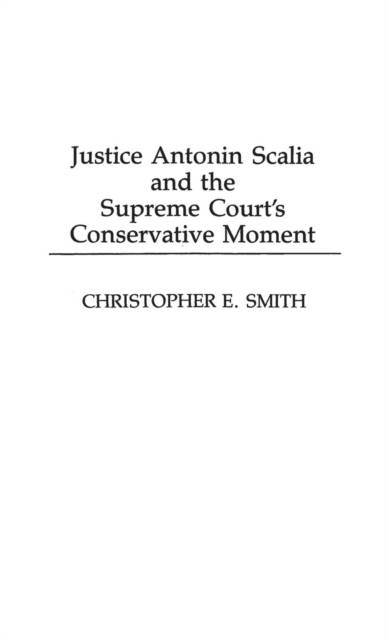
Bedankt voor het vertrouwen het afgelopen jaar! Om jou te bedanken bieden we GRATIS verzending (in België) aan op alles gedurende de hele maand januari.
- Afhalen na 1 uur in een winkel met voorraad
- In januari gratis thuislevering in België
- Ruim aanbod met 7 miljoen producten
Bedankt voor het vertrouwen het afgelopen jaar! Om jou te bedanken bieden we GRATIS verzending (in België) aan op alles gedurende de hele maand januari.
- Afhalen na 1 uur in een winkel met voorraad
- In januari gratis thuislevering in België
- Ruim aanbod met 7 miljoen producten
Zoeken
Justice Antonin Scalia and the Supreme Court's Conservative Moment
Christopher Smith
Hardcover | Engels
€ 127,45
+ 254 punten
Omschrijving
This book analyzes why the Rehnquist Court never fulfilled expectations for the reversal of liberal judicial decisions from the Warren and Burger Courts. At its conservative high point in 1991-1992 the Supreme Court was dominated by seven justices who had dependably conservative voting records over the course of their early careers. Five of these justices were appointed in the 1980s and early 1990s by Reagan and Bush, presidents who made concerted efforts to appoint judicial officers who would undo liberal precedents. This is the first book to focus on scholars' growing recognition that the Rehnquist Court has not been as conservative as most presumed it would be. In focusing on Justice Antonin Scalia, whose role inadvertently contributed to the Court's failure to achieve conservative goals, the study examines how individual justices can affect Supreme Court decisions through their judicial behavior.
Specificaties
Betrokkenen
- Auteur(s):
- Uitgeverij:
Inhoud
- Aantal bladzijden:
- 160
- Taal:
- Engels
Eigenschappen
- Productcode (EAN):
- 9780275947057
- Verschijningsdatum:
- 30/10/1993
- Uitvoering:
- Hardcover
- Formaat:
- Genaaid
- Afmetingen:
- 140 mm x 216 mm
- Gewicht:
- 335 g

Alleen bij Standaard Boekhandel
+ 254 punten op je klantenkaart van Standaard Boekhandel
Beoordelingen
We publiceren alleen reviews die voldoen aan de voorwaarden voor reviews. Bekijk onze voorwaarden voor reviews.









